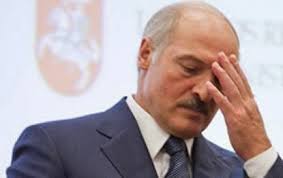The year 2014 was indeed eventful both for entire states and for their citizens and their families. Amidst a rather turbulent situation in the vastness of the former Soviet Union, the “Ukrainian question” has surpassed all geopolitical forecasts of the last few years. Ukraine’s current President Petro Poroshenko is obviously having a tough time but he is new to the job, thus, many of his mistakes are forgivable. Besides he has no other choice but to move forward to the West. However, for real political long-livers, like the Belarusian President Alexander Lukashenko, surviving is twice as difficult. With all the systemic errors that have been piling up, he has a tougher time making choices and consequently, every step he takes can prove to be his last. The recent months demonstrate that “batka” (Lukashenko’s nickname – “father”) is getting nervous and beginning to lose patience. Russia supplies both Ukraine and Belarus with multiple reasons for concern.
In late November 2014, the Russian Federal Service for Veterinary and Phytosanitary Surveillance (Rosselkhoznadzor) announced its decision to strengthen control over the transit of fruit and vegetables from Belarus due to suspicions that Belarus may be re-exporting EU-made products. Furthermore, Rosselkhoznadzor introduced a ban on processed meat supplied by a number of Belarusian poultry and meat processing factories. Officially, the ban was imposed after discovering traces of bacteria, microorganisms, antibiotics and African Swine Fever (ASF) in supplied goods. The Belarusian President then declared that the Russian authorities had behaved “indecently” and called the restrictions on food imports from Belarus a “brainless policy”. At the height of the confrontation between Russia and the West, Lukashenko challenged his government to find new sales markets for Belarusian products at any cost and added that Minsk officially opposed the practice of sanctions in international relations.
Fearing further aggravation of the economic crisis, the government of Belarus decided, in a purely Soviet style, to introduce a moratorium on raising consumer prices as well as on any increase in tariffs for the services provided by natural monopolies and economic entities with dominant position in the market. It is probably not a coincidence that this decision was followed by personnel changes in the Belarusian government itself, which, according to experts, was nothing but a cosmetic reshuffle, although “officials in Belarus are merely keys in a piano that is played but one person–Lukashenko”.
In the international arena, Lukashenko is seen as a peacemaker who offers a negotiation platform to parties in the Ukrainian crisis. However, at the same time it feels like the Belarusian president has his own agenda. It is also worth reminding that he criticized Ukrainian troops in Crimea for irresolution, saw no reason not to recognize the current Ukrainian government as legitimate and declared that the referenda on independence in the Luhansk and Donetsk regions that approved the regions’ status as independent people’s republics, were “meaningless from the legal point of view“.
It was Alexander Lukashenko’s speech at the summit of the Eurasian Economic Union in Moscow that became the apotheosis of the Belarusian president’s activity in 2014. In a tough and rather critical manner he stated that there still was no free movement of goods between member states of the EEU, that trade volume was decreasing and the media were accusing the allies of trying to “nip something off” Russia.
According to the media that covered the summit, the Belarusian leader had an aura of nervousness about him. His statement that “…Only the Belarusian people can discipline me. Even if the whole world today stands up against Lukashenko, he will still become a president if he wants to” became the climax of his speech.
“Batka” is obviously facing a rather tough choice. On the one hand, the current events in Russia make one think of a possible return to the Soviet Union, in which both Belarus and Ukraine would be assigned the well-known places of dependent “younger sisters.” On the other hand, the example of Ukraine and other former Soviet republics shows that in today’s world everything changes very fast, and the efficiency and security of leaders are not always directly proportional to their ambitions and the time they spend in power.
In this light, it is no surprise that Belarus decided to open two honorary consulates in the USA, and that the US Assistant Secretary of State Victoria Nuland declared that the United States was open to dialogue with Belarus and expects the government of Belarus to follow the path of promoting human rights and democracy. And finally, on December 30, right before the New Year, Alexander Lukashenko made a statement that fully illustrates the current situation. “If the West extends a hand of cooperation, we should take advantage of that. We will strive to normalize relations with the West…” he said, and added that “Belarus will not act to the detriment of brotherly Russia”. It is obvious that Alexander Lukashenko is currently facing a serious dilemma very similar to the one that brought down his Ukrainian counterpart Viktor Yanukovych in early 2014. Is “Europe’s last dictator,” as Lukashenko is sometimes called, capable of making the right decision?






